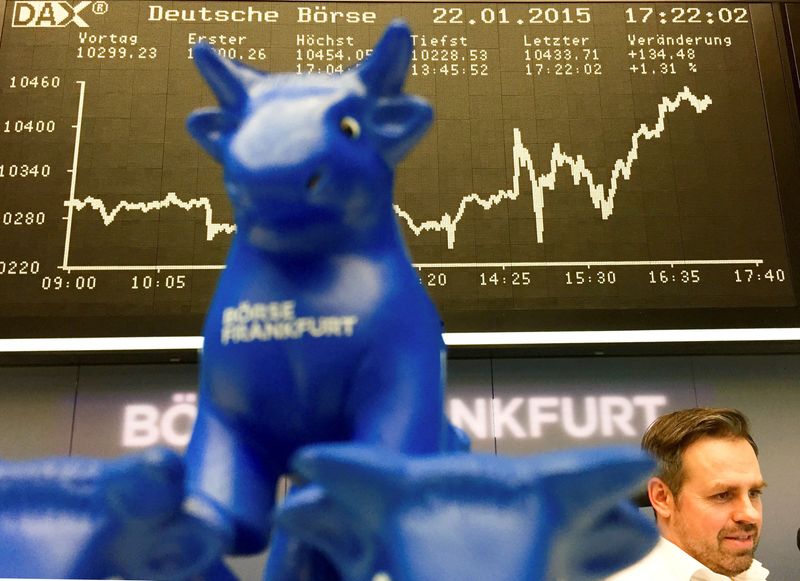By Peter Nurse
Investing.com - European stock markets are expected to open with modest gains Friday, tracking an extended recovery on Wall Street, ahead of a key EU meeting to discuss plans to tackle the region’s energy crisis.
At 02:00 ET (06:00 GMT), the DAX futures contract in Germany traded 0.2% higher, CAC 40 futures in France climbed 0.4%, and the FTSE 100 futures contract in the U.K. rose 0.4%.
Wall Street's main indexes posted gains on Thursday, with the blue-chip Dow Jones Industrial Average closing almost 200 points, or 0.6% higher.
This positive close has helped the tone in Europe Friday, but gains are likely to be tentative ahead of the meeting of European Union energy ministers to discuss the 27-nation bloc's response to the energy crisis, including potentially agreeing on the imposition of a price cap on gas imported from Russia.
Soaring gas prices are threatening to push some of the European countries heavily dependent on supplies from Russia into rationing as winter approaches, potentially shutting down industries and sending the region into recession.
“A few weeks like this and the European economy will just go into a full stop. Recovering from that is going to be much more complicated than intervening in gas markets today,” Belgian Prime Minister Alexander De Croo said Thursday in an interview with Bloomberg News. “The risk of that is de-industrialization and severe risk of fundamental social unrest.”
New U.K. prime minister, Liz Truss, announced plans on Thursday to cap consumer energy bills for two years and prop up power companies, a move which could cost Britain about 150 billion pounds ($290 billion).
This comes the day after the European Central Bank raised interest rates by an unprecedented 75 basis points on Thursday, and pointed towards further increases in the months ahead to tame runaway inflation.
Additionally, U.S. Federal Reserve Chair Jerome Powell reiterated the central bank’s hawkish stance on Thursday, stating that strong action was needed to combat inflation.
The European economic calendar is largely empty Friday, but investors could focus on French and Spanish July industrial production data for clues on how the region’s industrial base is coping with soaring energy prices.
Oil prices edged higher Friday, rebounding from an eight-month low, but are set for a second straight weekly decline as aggressive monetary policy tightening and China's COVID-19 curbs weighed on demand.
Data released Thursday by the Energy Information Administration showed a large buildup of U.S. crude inventories of 8.8 million barrels last week, more than that reported by the industry body API on Wednesday, creating doubts about the strength of demand from the world’s largest consumer.
However, this build is likely to have been exaggerated by the government releasing crude stockpiles from the country’s Strategic Petroleum Reserve.
By 02:00 ET, U.S. crude futures traded 0.2% higher at $83.72 a barrel, while the Brent contract rose 0.4% to $89.51. Both contracts were set to lose over 3% for the week, their second straight week of losses.
Additionally, gold futures rose 0.6% to $1,729.65/oz, while EUR/USD traded 0.7% higher at 1.0060.
